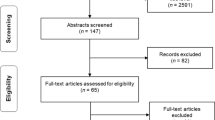Abstract
This paper is a case study of what Jon Elster calls "local justice"; particular schemes of justice which, on a relatively autonomous basis, are designed and implemented by institutions and practices to meet particular preferences and goals. The paper suggests an interpretation of the role of justice in sporting games. First, a framework for examinations of schemes of local justice is suggested. Second, norms are suggested that express the requirements that have to be met in order to consider a sporting game as just. The discussion shows that sports are characterized by a particular blend of meritocratic justice in which goods and burdens are distributed according to performance, and a non-meritocratic distribution through which goods and burdens arise as matters of chance. The essay concludes by arguing that the optimal blend of meritocratic justice and chance results in the realization of not merely fair sporting games, but of exciting and good games as well.
Similar content being viewed by others
Author information
Authors and Affiliations
Rights and permissions
About this article
Cite this article
Loland, S. Justice and Game Advantage in Sporting Games. Ethical Theory and Moral Practice 2, 159–178 (1999). https://doi.org/10.1023/A:1009960012546
Issue Date:
DOI: https://doi.org/10.1023/A:1009960012546




